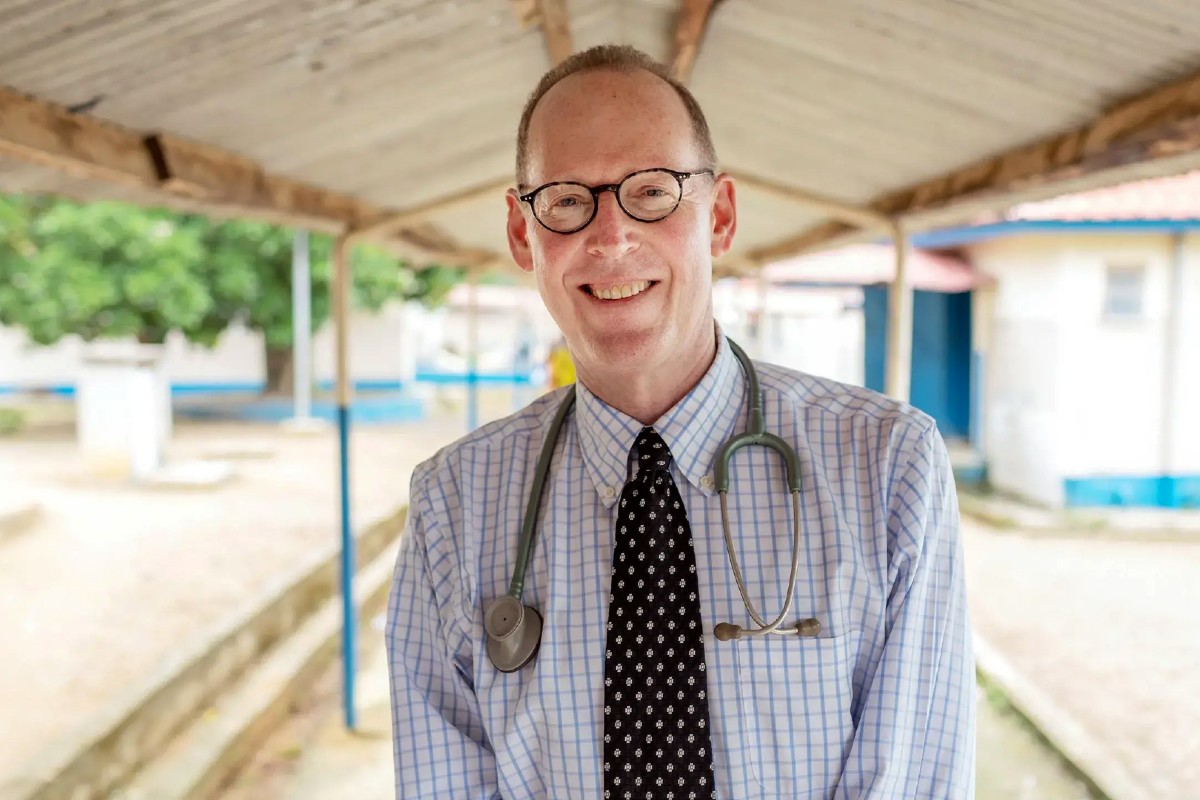
By Andy Brack, editor and publisher | It’s still easy to visualize Paul Farmer walking across the quad at Duke University on a blustery day. He wore a navy wool coat pulled tight against his wiry frame. He leaned forward, energetically pushing into the cold.
 I remember how Farmer’s intense blue eyes shone with a piercing intellect. Looking back, I wish we had become more than casual acquaintances – guys who nodded to each other at a party or had fleeting conversations.
I remember how Farmer’s intense blue eyes shone with a piercing intellect. Looking back, I wish we had become more than casual acquaintances – guys who nodded to each other at a party or had fleeting conversations.
He became what more than one person described as THE Paul Farmer – the internationally acclaimed doctor of “social medicine” who treated the poor in faraway impoverished places like Haiti and Rwanda. That Paul Farmer was a rock star in the world of global health – a guy that 81-year-old Dr. Anthony Fauci described as a mentor, even though Fauci was 19 years older.
Farmer, a Harvard-trained doctor on the faculty of the same school, died earlier this week in Africa doing what he did, providing compassionate care for those with nothing. Author of a dozen books, he pushed, nudged, cajoled, pontificated and engaged with world and medical leaders to get them to do the right thing to curb suffering. He once said, “So I can’t show you how, exactly, health care is a basic human right. But what I can argue is that no one should have to die of a disease that is treatable.”
Across South Carolina and the nation are thousands of health care professionals who are crestfallen at his death this week, apparently from a heart condition.
“I think this compassionate approach to getting health care to those who needed it most (but usually were not in a position to pay for it) made him a beloved and inspirational global health leader,” said University of South Carolina anthropology and public health professor David Simmons. “Additionally, he created structures (clinics, hospitals, teaching hospitals, and even a university in Rwanda) that helped facilitate this mission as well as train local generations of health care professionals to continue the work.”
Simmons, 55, was surprised when Farmer accepted an invitation in 1999 to join his dissertation review committee at Michigan State University. He still has the notes Farmer made on his work.
“His ability to walk in the shoes of the people he was working with and ministering to was something that he communicated with countless students and the lay public who read his work.”
Simmons said Farmer’s books have been used widely in South Carolina’s colleges to teach lessons of compassion in public health, medicine, global health and anthropology. As a medical student, Farmer co-founded Partners in Health, a nonprofit that started to help alleviate suffering in Haiti that grew into a global leader.
Greg Elmore, a fourth-year medical student at the Medical University of South Carolina, was reading Farmer’s latest book on the day he died.
“Many medical schools, including MUSC, are moving towards a focus on health equity and understanding the social determinants of health,” said Elmore, a former Peace Corps volunteer in Zambia. “I think Paul’s work has played a large focus on this shift. Thanks to his work and the work of others like him, there will be a whole generation of medical students graduating who will work to reduce health care disparities in our state which, needless to say, has some of the worst health care outcomes for non-white patients in the country.”
Kathleen Ellis, executive director of MUSC’s Center for Global Health, recalled a brief meeting with Farmer after a Boston panel discussion a few years ago in which they talked about Ebola virus in West Africa. “Within minutes, hundreds of students crowded around him as if this was a backstage session with John Lennon after a Beatles concert. What struck me was that he did not try to walk away or cut the students short, but started an open dialogue. He patiently answered questions and gave advice on how to prepare for a career in global public health.”
Farmer was a true educator who drove relentlessly to improve others’ lives and health outcomes. We need more like him.
Angels are all around us. Look around to make sure you don’t miss them.
Paul Edward Farmer Jr. (1959-2022). Rest in peace.
Andy Brack, editor and publisher of Statehouse Report, also is publisher of the Charleston City Paper. Have a comment? Send to: feedback@statehousereport.com.


